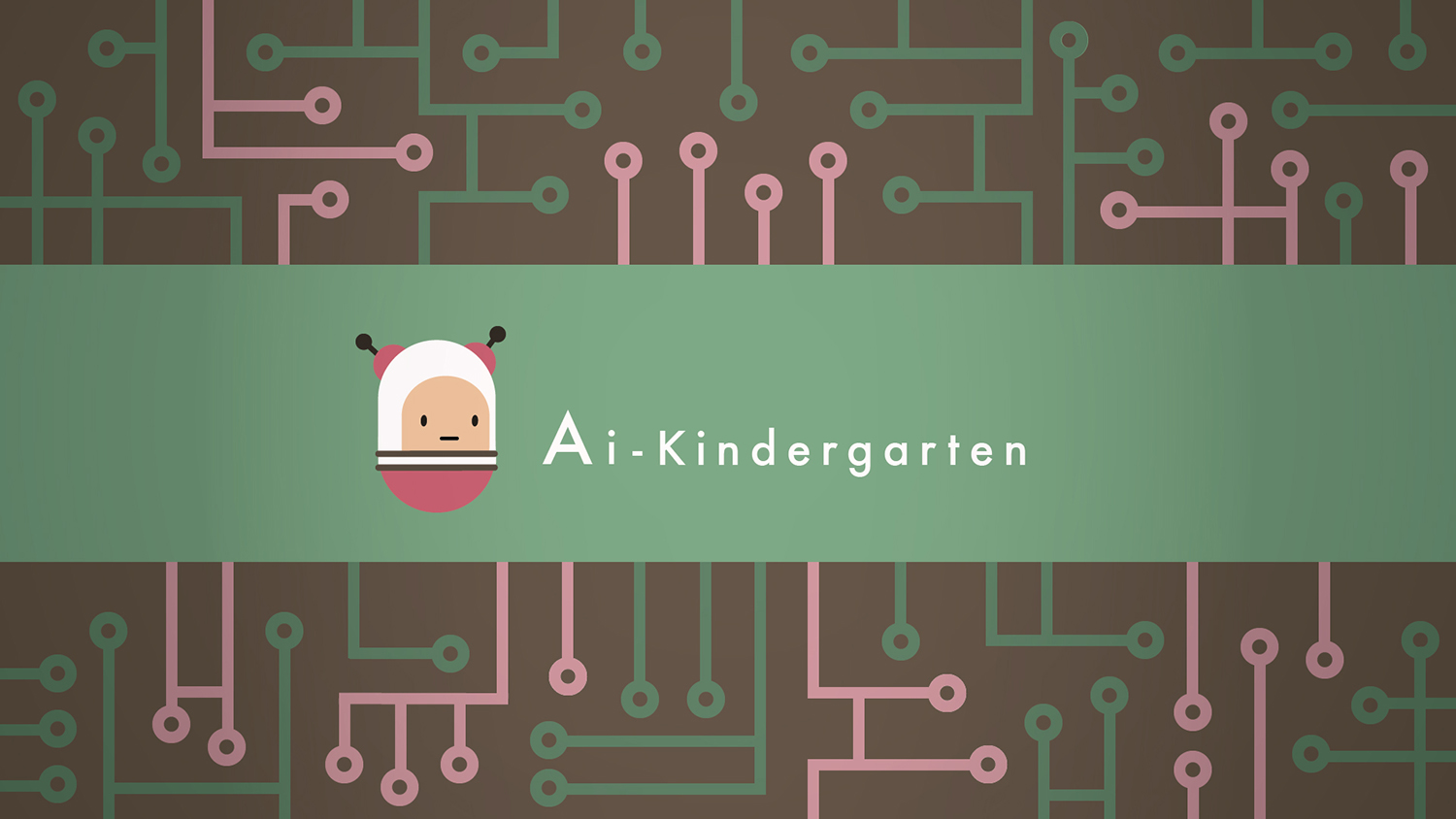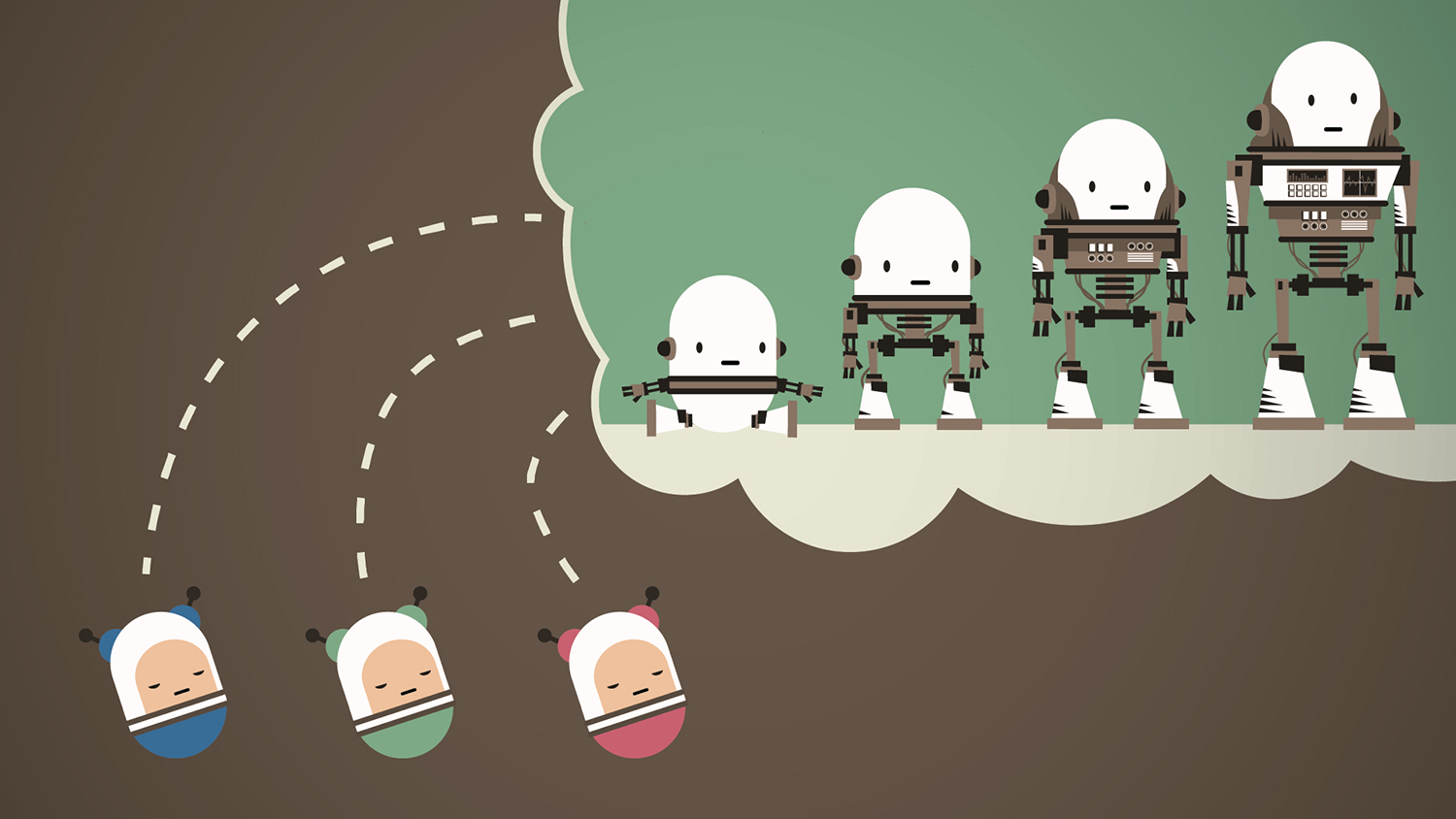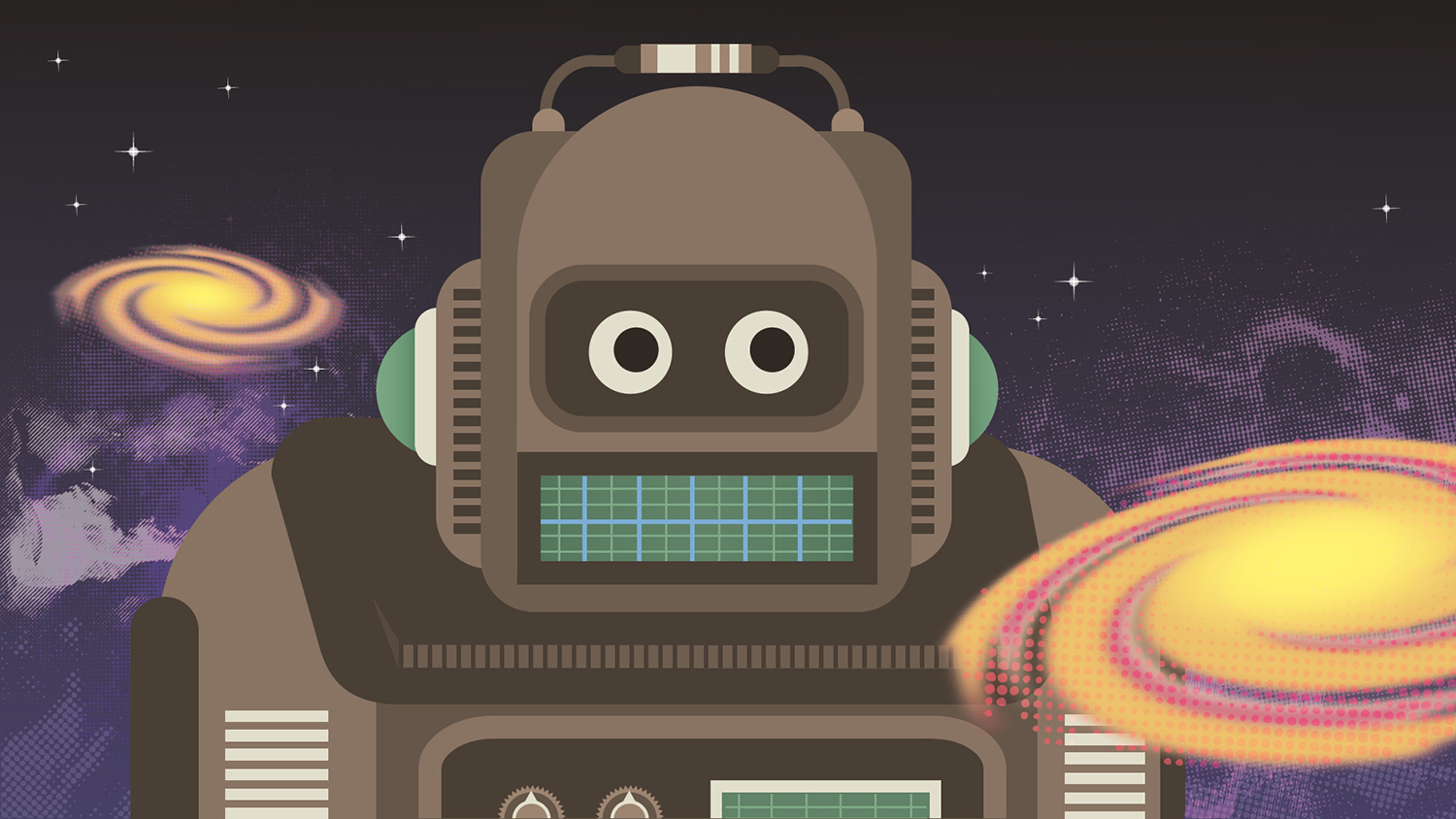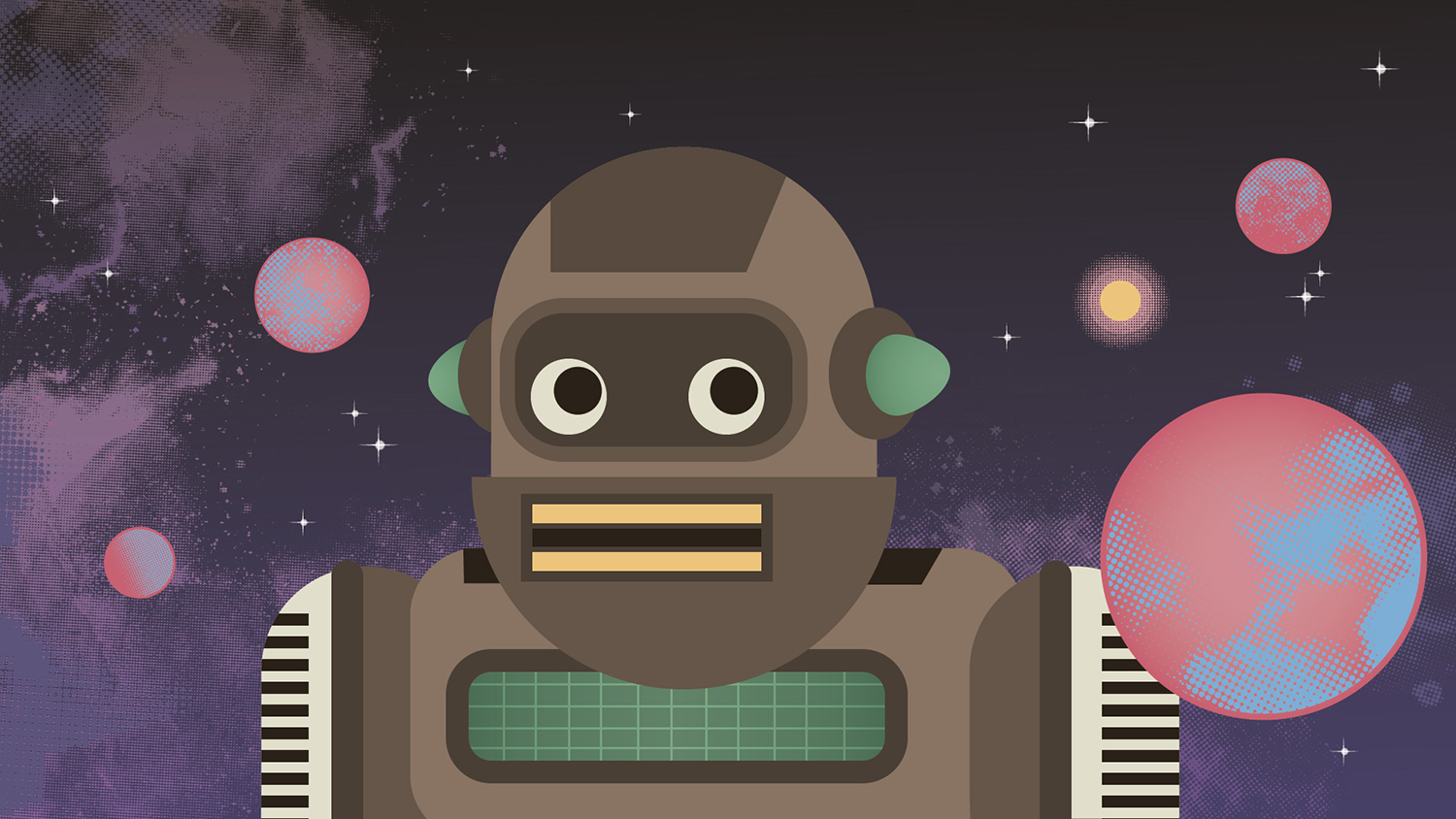AI-Kindergarten
Illustrated Slides for DANKO NIKOLIC: AI-KINDERGARTEN - BUILDING BIOLOGICAL-LIKE ARTIFICIAL INTELLIGENCE (RE:PUBLICA 2015)
Danko Nikolic is a researcher at the Max-Planck Institute for Brain Research. He is one of the most amazing thinkers I have ever met, and it's always lots of fun working with him. If you want to find out why you shouldn't be afraid of AI taking over the world, watch the video below (were my slides are featured), visit his web site or read this Motherboard article about him.
"Intelligent robots will need to be bred and raised, not programmed."






"Using the theory of practopoiesis, I will define first the problem of building biological-like artificial intelligence (or strong AI) and then explain the optimal efforts needed for a successful solution. This effort will require transferring knowledge from humans to machines in a manner that is more similar to what teachers do in preschools than what programmers and engineers do in labs. Thus, to create a strong AI, we will first have to create and employ a gigantic AI-kindergarten.
So far, artificial intelligence (AI) failed to achieve biological-like levels of intelligence. The recent theory of practopoiesis (http://www.danko-nikolic.com/practopoiesis/) tells us why: The existing systems are not sufficiently adaptive. Practopoiesis can also guide us to exactly pinpoint where the problems are and how to fix them. The problems stem from the fact that the knowledge must be stored in a much more general form than what we usually allow to AI. Moreover, limitations come from the sheer amount of cybernetic knowledge that needs to be accumulated and the intensive feedback from the environment required during the accumulation process. The consequence is that, unlike us, machines lack a vast amount of basic knowledge to begin their learning process with. This is a how-to-learn knowledge and would be a machine’s equivalent to starting a biological life with an already well-established genome—which required millions of years of painstaking trials and errors by our ancestors.
A shortcut for building AI possessing similar basic knowledge can be found from the fact that our own behavior already reflects the knowledge stored in our genome (following from the principle of knowledge transcendence of practopoiesis). In my talk, will propose a knowledge transfer theorem, enabling us to extract this knowledge from human operators and instill it into machines. I will also reveal a set of procedures that make this transfer of knowledge possible based on human-machine interaction. The theorem tells us that we can transfer knowledge from our genome to machine “genome”. Consequently, the effort to build biological-like adaptive AI (a.k.a., artificial general intelligence, or strong-AI) will primarily not involve programming and learning-databases. Rather, the process will heavily rely on an effort of interacting with machines much similar to the way in which we interact with, and teach, our biological children. This extensive effort shall be known as AI-kindergarten."
re:publica 15

